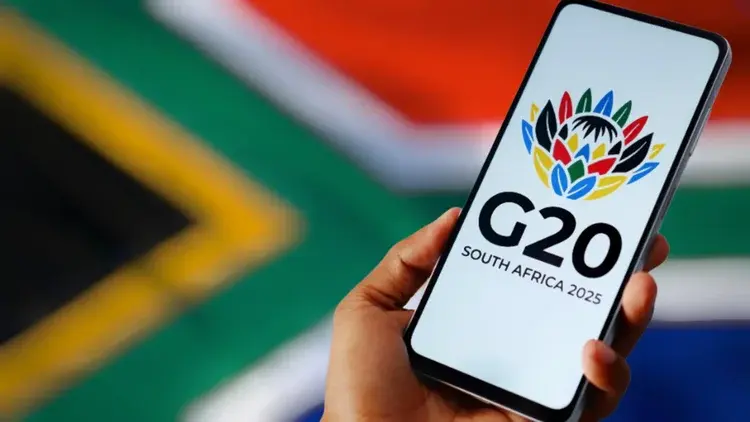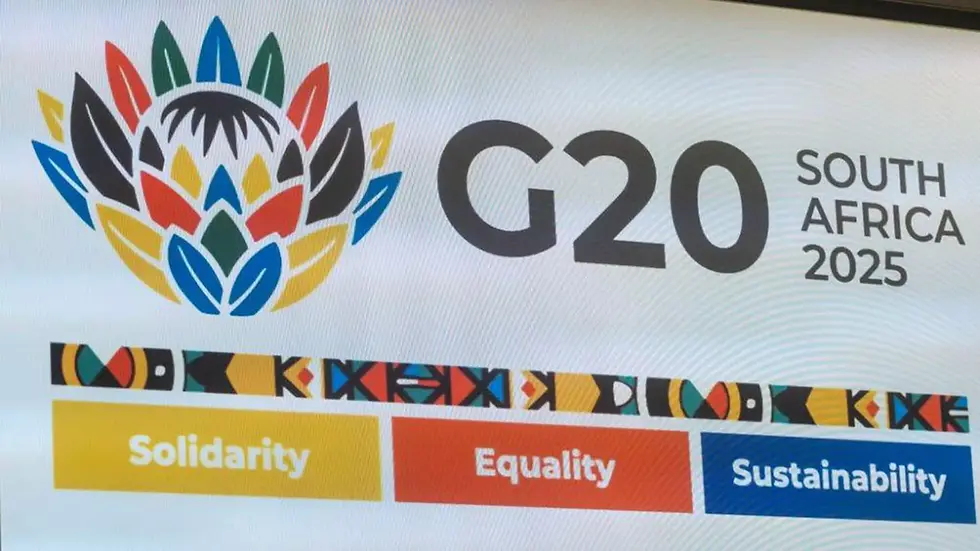Why journalists, especially women, must tell the Africa’s G20 story
- bongiwe53
- Jul 17
- 2 min read
As South Africa prepares to host the G20 Summit in November this year, a powerful call is being made to African journalists to step up and shape the narrative. At a July 10, 2025, webinar hosted by fraycollege in partnership with Sanlam and the B20 South Africa team, B20 task force members urged African storytellers to engage early and meaningfully with the G20.

“This is more than a business story,” emphasised Mamaponya Motsai, CEO of fraycollege. “This is a health story. This is a food security story. This is an education story. This is a climate story.”
She stressed that journalists must see the G20 not as a remote policy process, but as something that directly impacts African lives: “from our ability to afford food, to affording quality education and healthcare.”
For women journalists and storytellers, the opportunity is even greater. “The information ecosystem has changed, and who makes the news is not just journalists, it’s other storytellers,” said Motsai. “And everybody is so important in shaping the narrative of the G20 Summit 2025.”
“This must be Africa’s year—not just South Africa’s year,” said Cas Coovadia, B20 South Africa Sherpa and outgoing CEO of Business Unity South Africa.
The G20 presidency rotates among countries, and 2025 marks a historic milestone as the fourth consecutive year it has been hosted by a Global South nation. With Africa at the helm, the spotlight must include African voices, experiences, and solutions.
“Your coverage makes abstract policy visible,” said Coovadia. “Storytelling makes systemic challenges human. And your questions, sometimes uncomfortable ones, make leaders accountable.”
“Often what happens with our media is that we come in at the time of the event. And by then, it’s too late to have any meaningful impact,” Motsai cautioned. “So it really is a great thing that we get to start quite early and engage with journalists and storytellers.”
Women journalists, in particular, were encouraged to engage with the B20’s thematic task forces—some of which already include women-led organisations and SMEs. “
We have instructed all of our task forces… to hard-code issues related to SME development and women empowerment in each task force,” Coovadia explained. This opens a direct path for gendered perspectives and women-led reporting to be reflected in shaping global business policies.

Importantly, Africa’s representation must go beyond symbolism. “Africa has the resources to deal with the world’s food sustainability problems… to contribute to renewable energy… and to the digital economy,” said Coovadia. “This is about shared prosperity, not about charity.”
The webinar also highlighted how distorted media narratives fuel the perception of Africa as a high-risk, low-return environment—hurting investment and reinforcing inequality. “Africa loses over $4 billion annually due to perceptions and stereotypes of corruption and negative narratives,” Motsai noted, citing African No Filter research.
Changing these perceptions starts with changing the storytellers. As Pearl Majola, Head of Communication at Sanlam Group and a former journalist, reminded participants, “Your role in shaping the public’s understanding of the G20’s impact cannot be overemphasised.”
Read more:









Comments